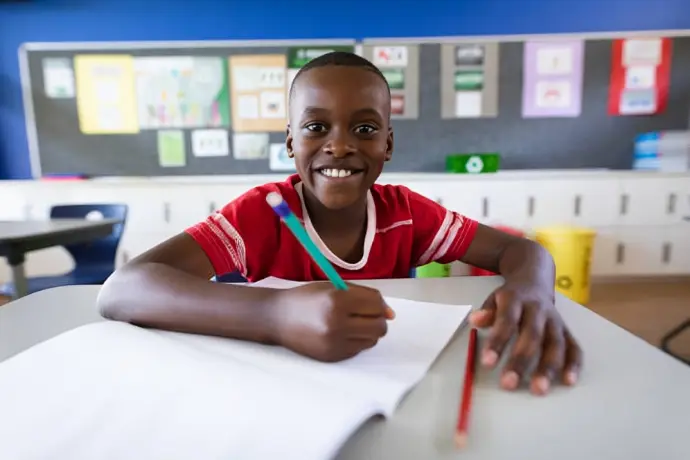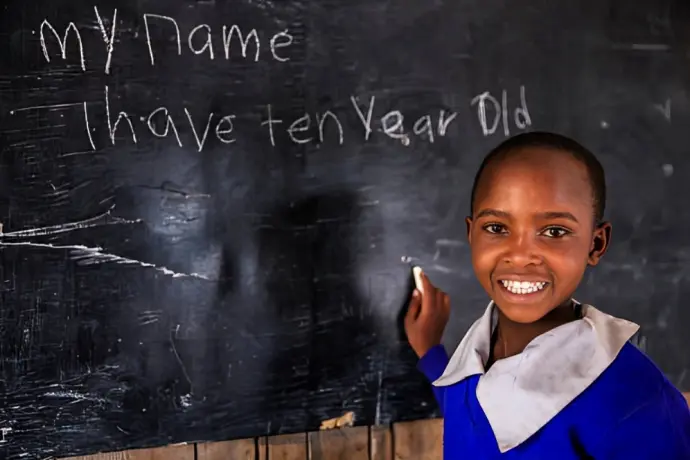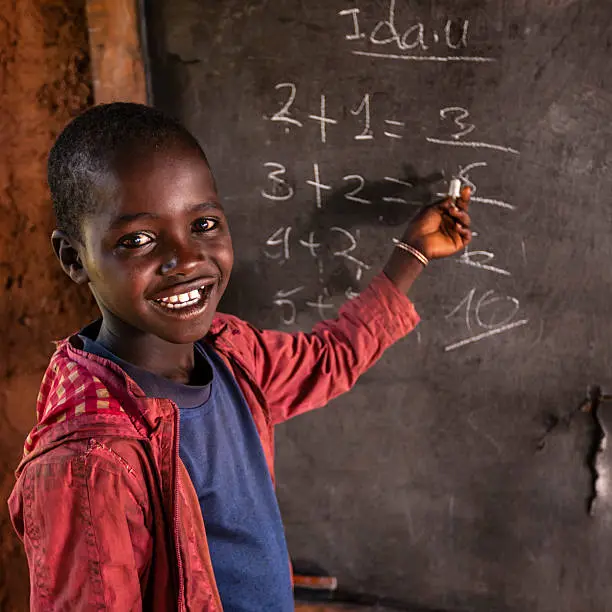Class, Gender, and Access to Education in Africa: A Contemporary Analysis
Immerse yourself in the captivating research of African civilizations and understand their impact on the world. In our study, "Class, Gender, and Access to Education in Africa: A Contemporary Analysis," we examine the complexities of the African education system from a distinctive perspective. Are you ready to begin a journey of learning and discovery? The adventure begins here.
Introduction to Education in Africa: Gender and Class Perspectives
The educational trajectory in Africa is rich and varied, with origins dating back to the continent's ancient civilizations. From the oral transmission of knowledge in traditional societies to the imprint of European colonization on educational structures, Africa has undergone a unique transformation in its education over time.
Before the arrival of colonizers, African communities employed their own teaching methods, focused on transmitting traditions, cultural values, and practical skills from one generation to the next. However, with colonization, new educational systems emerged that often dismissed indigenous education and promoted Western concepts.
During the 20th century, many African countries struggled to gain independence and autonomy in their educational systems, attempting to reconcile Western education with local needs and principles. This process of educational decolonization has been vital in revitalizing African education and recognizing the plurality of cultures and points of view on the continent.
Currently, Africa faces serious challenges in the educational field, particularly regarding equitable access to education based on gender and class. Despite progress in expanding primary education, profound imbalances remain that reflect deep-rooted inequalities in African society.
Girls and women in Africa often face additional obstacles when trying to access education, including gender discrimination, early marriages, and a lack of adequate educational infrastructure. Socioeconomic disparities play a decisive role in access to education, with low-income families struggling to finance their children's schooling.
To address these disparities, it is essential to develop inclusive education policies that ensure that every person, regardless of gender or socioeconomic status, can access an excellent education. Likewise, it is necessary to adopt a comprehensive approach that considers not only access to education but also the quality of instruction, the training of educators, and the cultural relevance of educational materials.

The Effect of Social Class on the Availability of Education in Africa
Economic disparities in Africa exert a considerable influence on access to education in the region. The lack of financial resources in many African households hinders children from obtaining quality education. Often, low-income families cannot afford education-related expenses, such as school uniforms, educational materials, or even tuition fees. This circumstance contributes to the continuation of the cycle of poverty, since without adequate education, employment opportunities and personal growth are severely restricted.
Furthermore, economic inequalities are also reflected in the quality of education available. Educational institutions in areas with limited resources often lack appropriate infrastructure, qualified teaching staff, and up-to-date educational materials. This creates an educational gap between children from wealthier families and those from less well-off households. Consequently, social inequality is perpetuated and the development potential of both individuals and society as a whole is limited.
To address these economic disparities in access to education in Africa, it is essential to implement inclusive education policies that ensure that all children, regardless of their socioeconomic background, have the opportunity to receive a quality education. This requires considerable investment in educational infrastructure, scholarship and financial aid programs, as well as ongoing teacher training to provide equitable, high-quality education for all.

Case Study: Educational Disparities in Nigeria by Social Class
A representative example of the inequalities in access to education in Africa is seen in Nigeria, where the educational gap between social classes is significant. In Nigeria, low-income families face multiple barriers to accessing quality education, including a lack of funds to cover school fees and a lack of public schools with adequate infrastructure.
This situation has caused many children from low-income families to drop out of school early or not be able to advance to higher education levels. In contrast, wealthier families can afford private education or enroll in high-quality international schools, giving them significant advantages in terms of future education and employment.
To reduce the educational disparity between different classes in Nigeria and the African continent, it is essential to establish inclusive educational policies that ensure equal access to high-quality education for all children, regardless of their socioeconomic background. This action will not only promote equal opportunities but also foster sustainable progress and social development in the region.
The Influence of Gender on African Education
Education in Africa is of great importance and is affected by multiple factors, gender being one of them. Over time, young women have had to deal with significant cultural barriers that have restricted their access to education. These limitations, which are based on social norms and customs, have continued to perpetuate gender inequality in education on the African continent.
African female students are often exposed to challenges such as early marriage, household obligations, and traditional gender role expectations that favor male education over female education. These cultural impediments not only restrict young women's educational access but also impact their retention in educational institutions and their future prospects. It is essential to confront these entrenched norms to ensure that all children in Africa have equal educational opportunities.
To address these cultural barriers, it is crucial to raise awareness and change attitudes in African communities. Investing in educational programs that support gender equality, provide support for girls, and challenge discriminatory norms is critical to establishing an accessible and fair educational environment for all in Africa.

Case Study: Progress in Women's Education in Rwanda
An encouraging example of progress in female education is Rwanda, where innovative policies and programs have been implemented to assert gender equality in the education system. Through initiatives such as the elimination of school fees for girls, the establishment of safe spaces in educational institutions, and training teachers on gender issues, Rwanda has made significant progress in women's education.
As a result of these actions, the enrollment rate of girls in primary and secondary schools has seen a notable increase in Rwanda. Additionally, a decrease in dropout rates among female students has been observed, demonstrating the positive impact of policies aimed at gender equity in education. Rwanda has become a model for addressing cultural barriers and promoting women's education to achieve a more just and prosperous future in Africa.
Intersectionality: The Confluence of Class and Gender in Education
Intersectionality is a fundamental concept for analyzing the interaction and intertwining of class and gender in access to education in Africa. This theoretical framework understands that an individual's identities and experiences are inseparable, and that the confluence of factors such as social class and gender can generate specific and complex inequalities.
Within the educational sphere in Africa, intersectionality plays a crucial role in defining who accesses education and who faces difficulties. Individuals belonging to disadvantaged groups, such as women from lower social classes, may face various forms of discrimination that impact their ability to access a fair education.
It is essential to examine how the interrelationship between gender and class influences the availability of educational resources, learning opportunities, and social expectations in African communities. By unraveling these complex dynamics, more inclusive and equitable educational policies and strategies can be formulated that seek to mitigate systemic inequalities.
In Kenya, girls from low-income families in rural areas often face considerable obstacles to accessing education. The interrelationship between gender and class is evident in various barriers that restrict these young women's educational opportunities.
Families with economic constraints may be unable to afford expenses associated with education, such as uniforms, school supplies, or school fees. This situation is exacerbated for girls, as boys' education is generally prioritized, thus perpetuating gender and class inequalities.
Additionally, deep-seated gender norms in certain rural Kenyan communities can limit educational opportunities for girls, prioritizing their domestic responsibilities over their academic training. These societal expectations restrict girls' autonomy and empowerment, perpetuating a cycle of inequality that impacts their access to and retention in the education system.
Strategies and Solutions to Improve Access to Education
Government actions are fundamental to promoting education in Africa. Over the years, various African nations have developed policies and programs aimed at facilitating access to education, particularly for those in disadvantaged situations, such as women and low-income communities. These actions frequently include building schools in rural areas, providing scholarships and educational grants, and training teachers to ensure quality education.
The impact of these government measures has been notable in multiple African countries. For example, in Nigeria, the "Education for All" program has helped raise school enrollment rates in both rural and urban areas, providing educational opportunities to thousands of children who would otherwise have been unable to access formal education. Similarly, in Kenya, the government has implemented policies to eliminate cultural and financial barriers that prevent girls from attending school, resulting in increased enrollment and retention among this group in the country.
Despite the progress achieved through these initiatives, challenges persist that require attention, such as insufficient adequate educational infrastructure, a lack of trained teachers, and the continued existence of cultural norms that restrict access to education for certain groups. It is essential that African governments continue to allocate resources to education and develop inclusive policies that address gender and social class inequalities in access to education.
Additionally, non-governmental organizations (NGOs) and the international community play an essential role in promoting inclusive education in Africa. Numerous NGOs collaborate with local governments to implement educational programs that respond to the specific needs of marginalized communities, such as training educators, providing educational materials, and raising awareness about the importance of access to education.
The international community has also made significant contributions to improving educational access in Africa through cooperation and assistance programs. Institutions such as UNESCO, UNICEF, and the World Bank have provided funding for educational projects throughout the region, with the aim of reducing gender and class inequalities in education. For example, UNESCO's "Education for All" program has been crucial in fostering universal primary education and promoting gender equality in access to education in numerous African countries.
Together, the efforts of the government, non-governmental organizations, and the global community play a complementary role in improving access to education on the African continent. However, it is imperative to continue strengthening cooperation among these stakeholders and increase investment in education to ensure that all children, regardless of gender or socioeconomic status, have the opportunity to access quality education and realize their full potential.
Conclusions and Reflections on the Future of Education in Africa
Historically, access to education on the African continent has shown marked inequality, reflecting significant barriers based on gender and social class. In recent decades, notable progress has been made in improving access to education in the region; however, significant challenges remain that need to be addressed.
With regard to gender, girls and women in Africa continue to face difficulties in obtaining quality education compared to boys. These inequalities are exacerbated by a range of cultural, economic, and structural factors that restrict their educational opportunities and capacity for empowerment.
Regarding social class, marginalized and vulnerable groups in Africa frequently struggle to access adequate education due to limited resources, inadequate educational infrastructure, and discriminatory policies. The educational gap between the upper and lower classes remains a considerable challenge in the region.
To achieve a more inclusive education in Africa, it is crucial to develop policies and programs that comprehensively address gender and social class inequalities in access to education. This means ensuring equal opportunities for girls and women, as well as for marginalized and disadvantaged groups.
It is essential to invest in teacher training and improving educational infrastructure in underserved communities to ensure that all children and young people have access to quality education. Likewise, educational programs that take into account gender and cultural specificities must be developed to foster equity and diversity in the classroom.
In this context, collaboration between governments, non-governmental organizations, and civil society is crucial to promote transformative change in the African continent's education system. Only through a joint and sustained effort can we build a future in which education is truly inclusive and fair for all individuals living on the continent.

 IHRO NEWS
IHRO NEWS